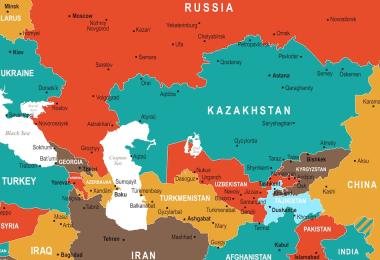The Portuguese wine sector is one of the most dynamic in the country’s weakened economy. After years of rapid modernisation, with major investment in wineries, vineyards, training and education, it took a major contraction of the domestic market to make producers bet decisively on looking overseas. As a result, Portuguese exports of wine rose to an unprecedented figure of €700m ($948m) in 2013. One of the causes and consequences of this growing success is the involvement of ever more formally educated people in the business, bringing a professional attitude to what is essentially an agricultural endeavour that was, until recently, seen as a relatively unexciting business sector. Substantial investments in formal education have contributed to create what is recognised as the most highly qualified generation ever to exist in Portugal; heavy youth unemployment has made this young generation both more competitive and fiercely hungry.
Everywhere in the wine country, quality has risen and a greater focus is being placed on business strategy. Portugal’s situation is not easy, though. The increase in value-added tax in restaurants from 13% to 23% caused thousands of on-trade establishments to close, driving a substantial change in consumption towards drinking at home. At the same time, wine is trendier than ever, and new wine bars are constantly opening throughout the main cities. Even when they don’t last long, the buzz is considerable, and it reinforces wine as a trendy, cultural product.
Several television shows focus on fine cooking and although wine is not addressed explicitly (alcoholic beverages cannot legally be promoted in prime time), this also contributes to an appreciation of a lifestyle that involves fine wine and gastronomy. Little by little, wine distribution is consolidating among solid, professional companies. The competition has less positive results among producers, since lowering ex-cellar prices is often used to secure a niche in the market and, at least, short-term survival. This kind of self-defeating exercise is pushing most producers into the corner, as companies in important niches such as Port have realised.
As a result, Port prices are rising again. The same will surely happen for the rest of the sector, as a country such as Portugal, with its production costs, can never compete globally simply on the basis of price. All in all, the worst seems to have passed for the Portuguese wine sector, and although hard times are still ahead, the present crisis seem to have left behind a set of good principles that can render the sector more competitive, professional and goal-oriented.
Notable Importer: Decante Vinhos
In Portugal, the consumption of imported wine is limited. Most distributors keep a small range of foreign wines for the glamour it adds to their portfolio. Portuguese wine lovers with an international taste usually resort to international companies, with good online catalogues. Even so, for their interesting offerings, it is worth mentioning Heritage Wines (Fladgate-owned), Portfolio Vinhos (Symington-owned), Direct Wine and Decante Vinhos. Of these, Decante is the most notable wine importer.
Notable Distributor: Heritage Wines
As explained above, distribution in Portugal is now mostly in the hands of talented professionals and standards of customer service, advice delivery and financial management have been raised significantly. Among several strong candidates, Heritage Wines stands out for their impeccable portfolio of very strong brands, and market share of iconic Portuguese wines.
Notable Supermarket: El Corte Inglés
Portugal has several major supermarket chains with hundreds of shops, and smaller local chains with only a handful of outlets. El Corte Inglés has invested in expanding its chain, which includes both big shopping malls and smaller shops. There is always a strong range of wines, but also a good selection of Spanish wines, and a better-than-average array of other international offerings. Some shops include a ‘Club del Gourmet’ department, offering fine wines. Service, quality, reliability, communication and complementary range of products are recommendable, even if margins tend to be on the high side, except for a few Spanish gems.
Notable Retailer/Wine Shop: Garrafeira Nacional
Several wine shops have recently opened, and older ones updated with the common aim of embracing new ways of addressing customer needs at a time of an ever-widening range of retail channels. Skilful range selection, consumer advice and frequent tastings of interesting new wines are essential keys for modern consumers. Location also seems to be crucial today. Garrafeira Nacional is over 80 years old, based in downtown Lisbon, and keeps a great collection of old and current vintages. Two more shops have been opened and there are frequent tastings and events, making this an essential destination for tourists visiting Lisbon, and locals looking for fairly-priced wines.
Notable Direct Order Company: Garrafeira Nacional
Alongside its bricks-and-mortar business, Garrafeira Nacional offers a great website, as well as a regular email newsletter, containing new arrivals, discounts and promotions. Delivery in mainland Portugal is free for purchases over €50.00, and shipment is available for any international destination.
Notable Restaurant Wine List: Fortaleza do Guincho
The recently opened hotel-restaurant The Yeatman, in Porto, has a fabulous wine list, though most customers are happy to choose from a slimmer selection. Another runner-up for this category is Vila Joya, a great Algarve restaurant that frequently features on lists of the world’s best restaurants. It was just beaten by Fortaleza do Guincho, a great seaside restaurant with fabulous food and ambiance. Its list has been built over several years and impeccably balances vinous glamour and affordability.
Notable Wine Bar: Garrafeira Alfaia
Surprisingly, until recently, wine bars barely existed in Portugal. Nowadays, it’s difficult to keep up with the speed at which new ones open. And close. Most wine bars seem to lack what the public is really looking for: a good, varied selection of distinctive wines, or competent service, or even a reasonable menu. The establishments listed here are examples to be followed. Dux Petiscos e Vinhos in Coimbra serves surprisingly exciting food with a good list of inexpensive wines. Chafariz do Vinho situated inside an eighteenth-century aqueduct in Lisbon, has an extensive wine list including old vintages and rarities. Garrafeira Alfaia is an extension of Restaurante Alfaia, which was founded in the 1880s. Like that establishment, it offers great, traditional food but a broader, more dynamic wine list, with limited releases, international wines, and scope for experimentation by customers. Pedro Jorge, the bar manager, is also a great host.
Notable Sommelier: Sérgio Pereira
Several sommeliers are worth mentioning. Inácio Loureiro, head sommelier of Fortaleza do Guincho offers impeccable service, while doing a great job of managing his cellar, making wines available when he considers them ready. Arnaud Vallet, head sommelier of Vila Joya, also offers spotless service, profiting from a cellar filled with 12,000 bottles of wines from Portugal and elsewhere. Sérgio Pereira takes the edge by managing Rui Paula’s DOP restaurant, in Porto. DOP has a great wine list, with all of Portugal’s best wines and a good international selection. Pereira is also has incredible intuition for matching wines with Rui Paula’s modern take of Northern Portugal food.
Notable Wine Publication: Revista de Vinhos*
The monthly Revista de Vinhos continues to be Portugal’s most respected and influential wine publication. Highly regarded, it has expanded its influence beyond print, by launching a website with some of the magazine’s contents, and by organising events promoting Portuguese wine and its regions.
Notable Wine Journalist: João Paulo Martins
João Paulo Martins’ annual guide, published for more than 20 years, is considered the bible of Portuguese wine. He writes for Revista de Vinhos, has a column in Portugal’s most respected newspaper, Expresso, and runs courses and hosts tastings in Portugal and abroad.
Most Influential Person: Luis Pato
Over the last few years, few individuals had a commanding influence over the Portuguese wine industry. A lot of young people have brought new ideas and there’s widespread transmission of knowledge, novelty and experimentation. Luis Pato, one of the best known Portuguese producers in the world, stands apart from this picture, earning credit for his many achievements and activities, and inspiring others. A chemical engineer by training, a winemaker by experience, he released his first wines in 1980 as a radical innovator in the conservative region of Bairrada. While introducing crop thinning and new oak barrels, he experimented with ungrafted vines, and defended the indigenous grape varietal, the Baga. He valued old vineyards, coined the use of terms like ‘vinhas velhas’ and ‘monopólio’, created ‘molecular’ sweet wines, ‘orange’ wines and traditional-method sparkling wines. Pato recently became co-vice president of ViniPortugal, Portugal’s principal promotional body.
Notable Producer Association: CVR Vinhos Verdes
Some of the recent success of Portuguese wine can be attributed to the regional committees. Most of these changed their management and became less conservative in their attitudes, focusing on helping producers to succeed rather than rigidly controlling what they could and could not do. The CVR Vinhos Verdes is a great example of this success. It keeps a personal manager account for each producer, a flexible approach to bureaucracy, explicit and objective strategic goals, and facts and figures that make it very easy to evaluate the results of their promotional efforts. These have been sensational, with Vinho Verde recently becoming one of Portuguese industry’s biggest successes, overcoming a somewhat negative image the region suffered just a few years ago.
Major Promotional Body: ViniPortugal
ViniPortugal is an inter-professional organisation bringing together trade, producers, co-operatives, distillers, farmers, demarcated regions and government institutions. With an annual budget of €7.5m, financed by taxes on wine, ViniPortugal has as its goal the promotion of Portuguese wine in the domestic market and in target international markets. ViniPortugal currently runs over 100 campaigns in four continents and 11 strategic markets, involving about 350 producers. These campaigns are focused on members of the press and opinion leaders, but also serve to bring together producers and importers in the targeted markets.
*Declaration: Dr Luis Antunes is the wine and food critic for Revista de Vinhos magazine.








